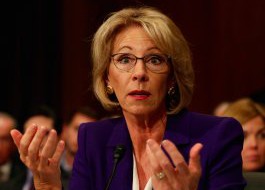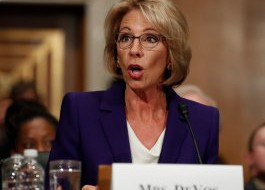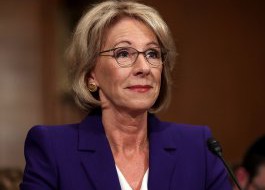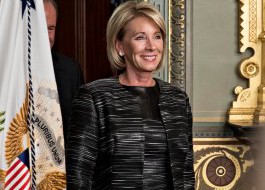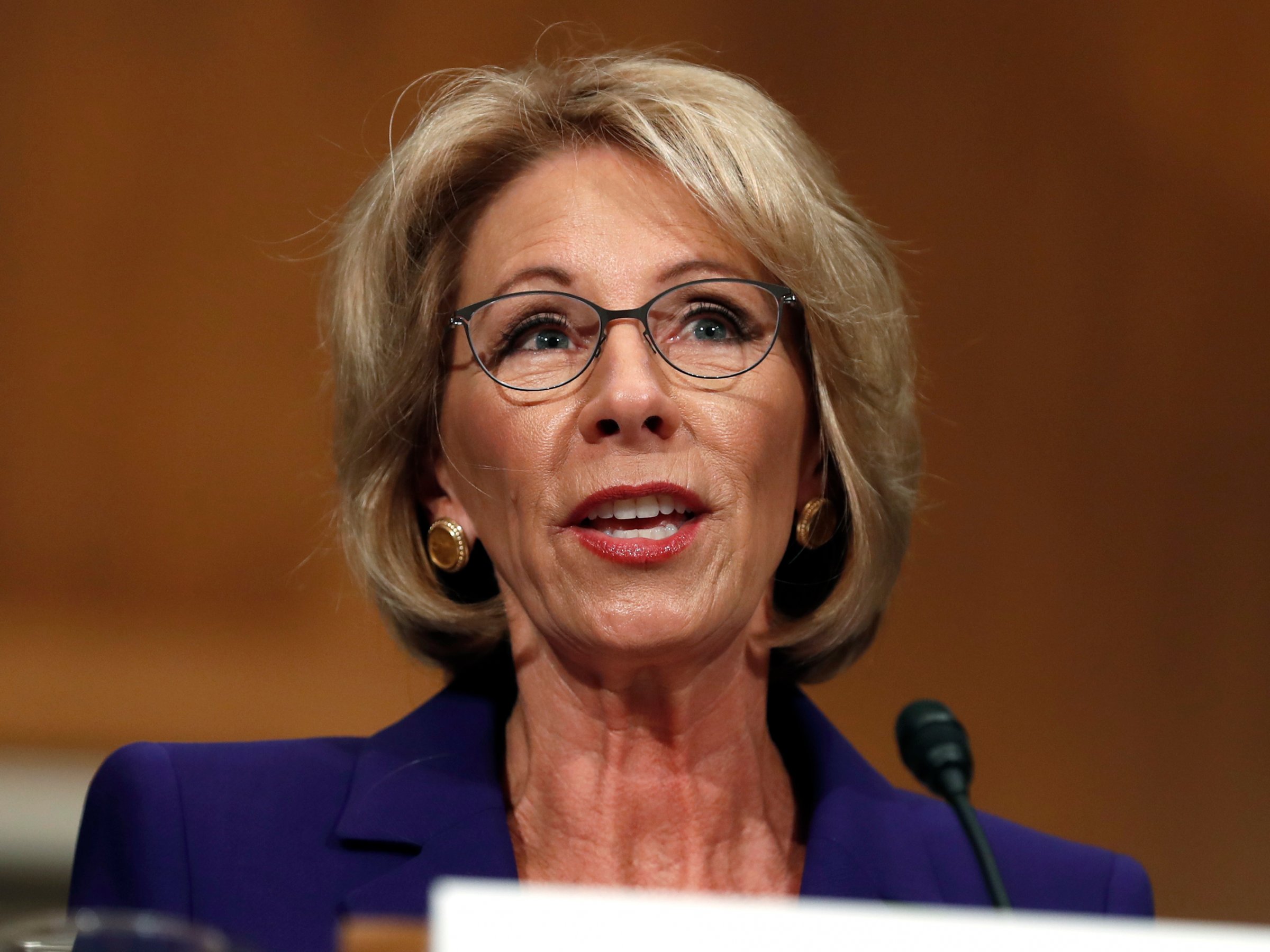
The Senate confirmed Betsy DeVos as the secretary of education on Tuesday in historic fashion, requiring Vice President Mike Pence to cast the tiebreaking vote.
The Senate split 50-50, with every Democratic member and Republican Sens. Susan Collins of Maine and Lisa Murkowski of Alaska voting to oppose DeVos. Pence's vote was the first time in US history that a vice president has had to cast a tiebreaker for a Cabinet nominee.
The vote ended an uncharacteristically contentious confirmation process for a secretary of education. Typically, the position is confirmed without major opposition.
But DeVos' nomination elicited strong public outrage, spurring thousands of calls from constituents to their senators. Protests in opposition to her nomination cropped up around the US, and Democratic lawmakers on Monday held a marathon late-night session to oppose DeVos.
An advocate for alternatives to traditional public schooling, DeVos championed charter schools and school-voucher initiatives in her home state of Michigan, where she served as chairwoman of the Michigan Republican Party.
Democrats have argued that she is unqualified to be secretary of education, a view that centered on a confirmation hearing in which DeVos was grilled on several issues and often gave vague answers or said she was currently unable to provide a response. In perhaps the most widely circulated exchange, when asked about guns on school campuses, DeVos noted that guns could "protect from potential grizzlies."
Still, most Republicans in the Senate stand behind DeVos. "She's been on the forefront of the most important education issues," Republican Sen. Lamar Alexander of Tennessee said on Tuesday, citing her contributions to the school-choice movement.

